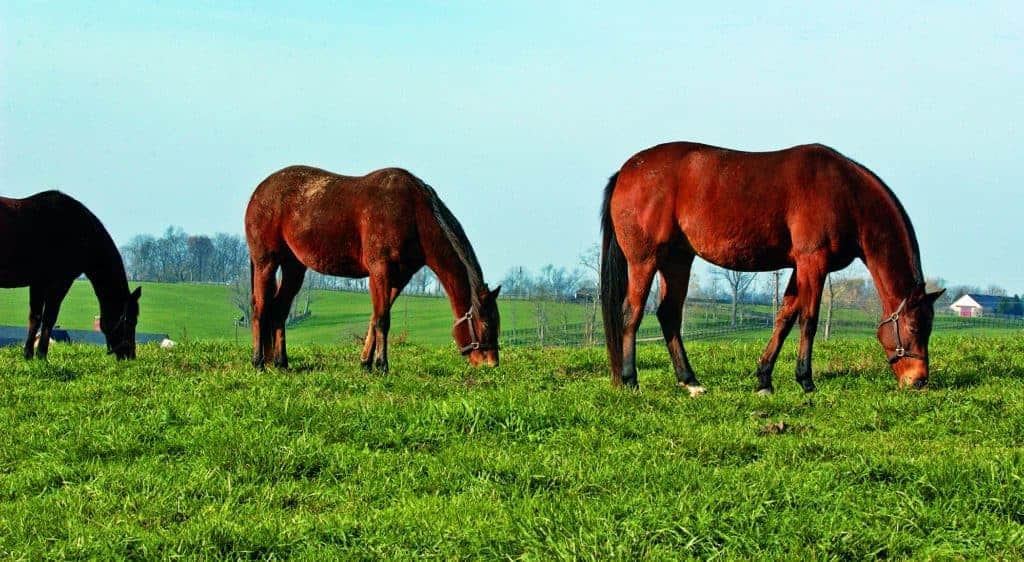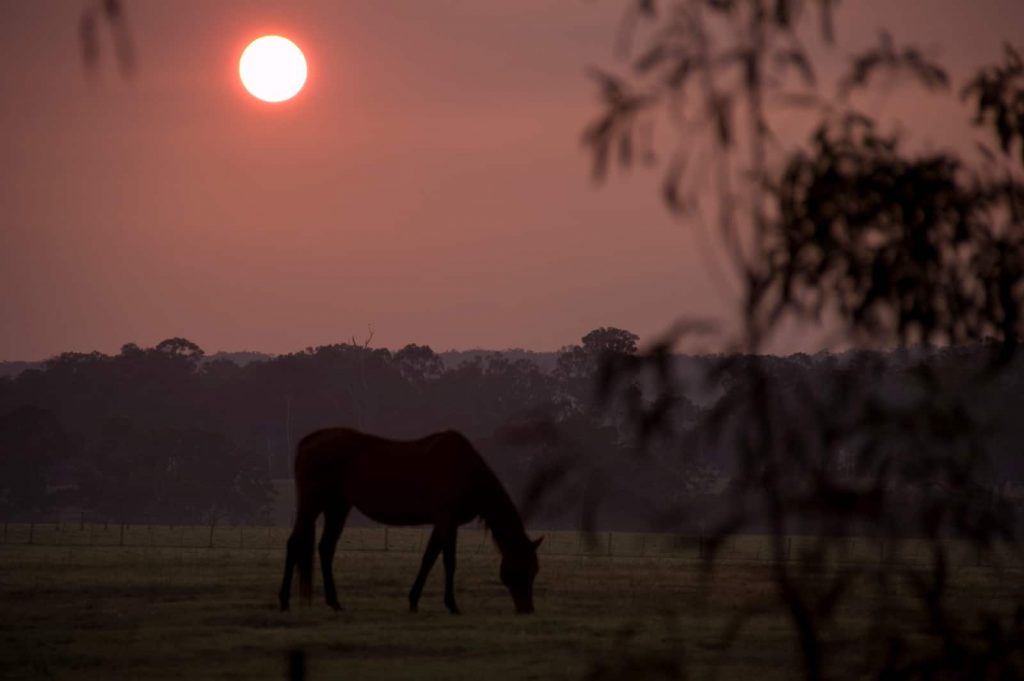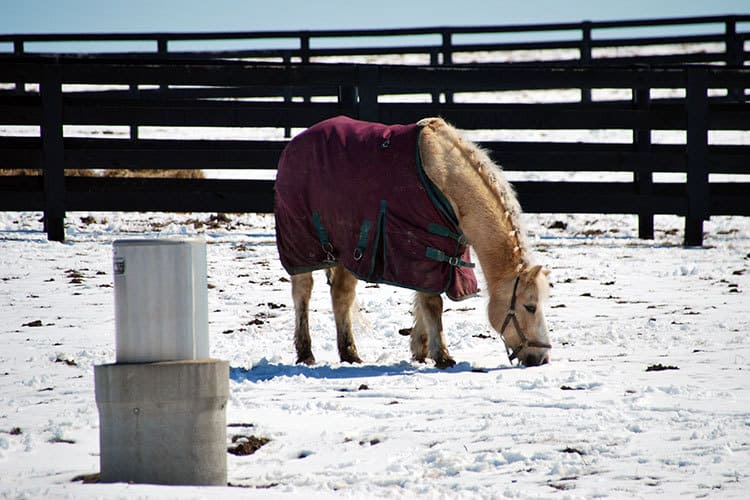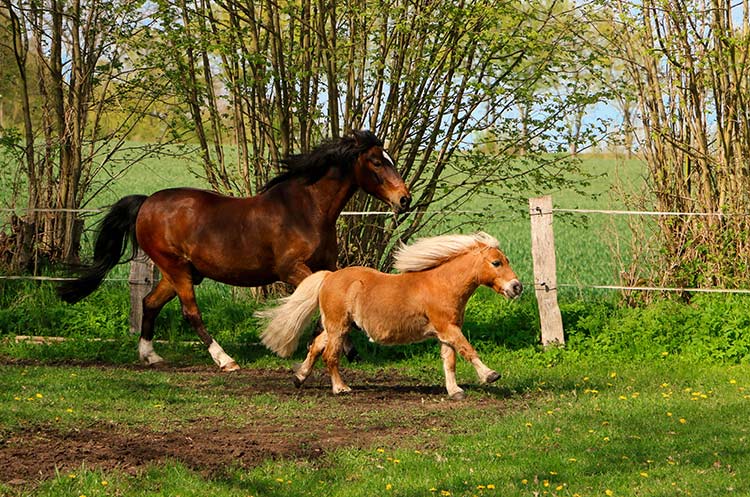
Feeding Metabolic Broodmares
If your broodmare is overweight and/or has metabolic problems, her foal could be at risk. Here’s how you can keep both horses safe during pregnancy.

If your broodmare is overweight and/or has metabolic problems, her foal could be at risk. Here’s how you can keep both horses safe during pregnancy.

One equine nutritionist offers tips and asks for your input on dealing with ice in horse watering tanks.

If your horse is living in an area with poor air quality, he might benefit from wet or steamed hay and omega-3 supplementation.

Appropriate hydration is vital to your horse’s normal bodily functions. Here’s what you can do to ensure he is drinking enough this winter.

Don’t wait for the first snowflakes to prepare your horse property for the cold, dark, and wet months ahead.

Horses are very adaptable and typically can handle significant temperature changes; however, when we alter their natural condition, they might struggle.

Is your hay more than 6 months old? Then it might be losing vitamin A and E.

Black cherry leaves are blowing into a horse pasture, and the owner is worried they will put her horses’ health at risk.

An equine nutritionist explains why you should consult your veterinarian and test hay quality if your mule (or horse) has a hay belly.

A forage-only diet can meet most horses’ nutritional needs.

One equine nutritionist explains why mineral blocks might not be ideal for mules, and what can replace them.

Learn about feeding basics, from hydration and forage to feeds and supplements, so you can make the best nutritional choices for your horse.

Is your feed room overflowing? Get advice on streamlining equine diets when you’re feeding horses with a variety of nutritional needs.

Learn how to design a diet for horses suffering or recovering from equine odontoclastic tooth resorption and hypercementosis (EOTRH).

One equine nutritionist explains how you can make sure your PPID horse’s hay is safe for him to eat.

Understanding how your growing foal’s digestive system works can help you recognize and avoid potential problems.
Stay on top of the most recent Horse Health news with
"*" indicates required fields